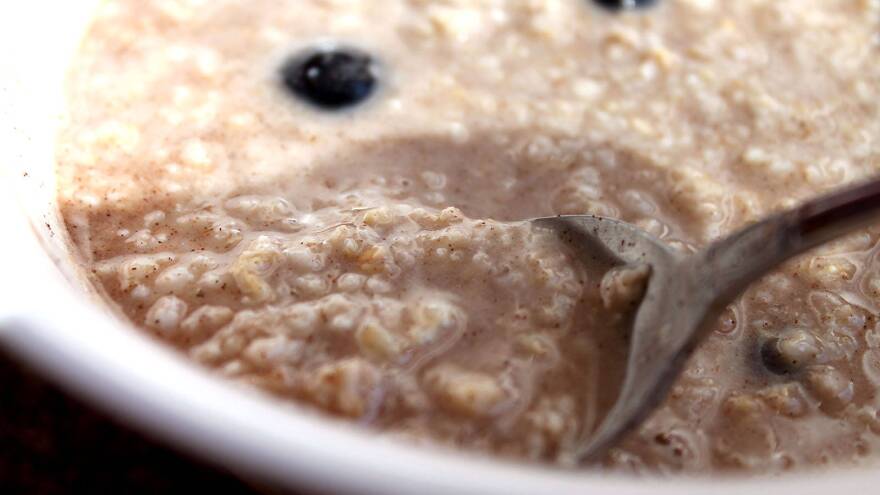It is not true, as the humor website Cracked satirically suggests, that oatmeal was invented by a research scientist at Britain's Royal Academy of Adhesives and Sealants during an experiment in search of new forms of industrial glue. But if your idea of oatmeal is the pasty variety made in a microwave from a packet, the story can seem plausible.
In Scotland they know better. Their oatmeal, or porridge, is a hallowed dish, celebrated every year at the World Porridge Making Championship in the village of Carrbridge.
No wonder, then, that Samuel Johnson defined oats as "a grain, which in England is generally given to horses, but in Scotland appears to support the people."
The Scots were hardly the first to cultivate oats, but for reasons of geography and climate they were among the first to appreciate them. Oats have been around for thousands of years, the oldest known grains traceable to Egypt's 12th Dynasty, around 2000 B.C., though the Chinese may have been familiar with them even earlier than that. But unlike wheat and barley, oats were not valued much by the Egyptians and were not actually cultivated by them. In fact, they were regarded as little more than weeds.
The first attempts at cultivation, according to the "Oxford Companion to Food," did not take place for another thousand years. But still people did not find oats particularly appealing. The Greeks and Romans considered them fare for barbarians. Even today, some 95% of commercially grown oats are produced not for human consumption but for animal fodder.
Thanks to the Romans, oat cultivation found its way to Britain where the climate, especially in Scotland, is well suited to growing the grain. And it didn't take long for oatmeal to become something of a national dish, right alongside haggis, which itself contains oatmeal. No wonder, as the Oxford Companion puts it, "There seems to be an affinity between oats and people of Celtic origin." For them, a gruel winter is something to be happy about.





